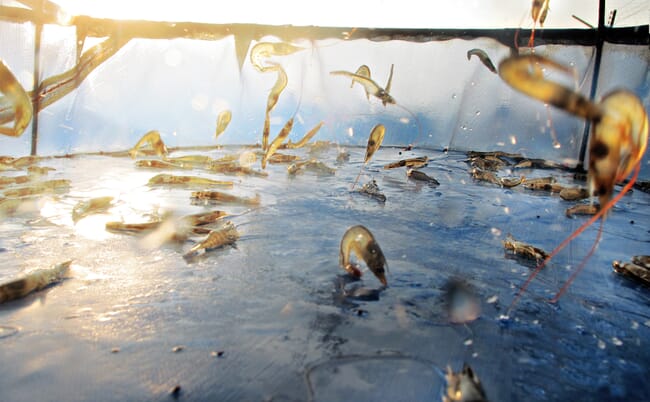
Although the original 9 July deadline for implementing US tariffs has now been pushed back to 1 August, uncertainty around trade policy dominated early discussions. In a live poll during the summit’s opening session, attendees unanimously cited tariffs as the most pressing challenge facing the industry. Yet, rather than retreating, producers, analysts and supply chain leaders used the event to focus on long-term growth, innovation and practical solutions within their control.
"Challenging economic conditions and market uncertainty made it even more imperative for all sectors of the industry to come together to exchange information and learn from one another," said George Chamberlain, president of TCRS, in a press release.
Major buyers like Red Lobster are reportedly developing contingency plans, while analysts suggested that emerging markets, particularly China, may help offset declines in U.S. demand. Ragnar Nystøyl of Kontali Analyze offered a reminder of resilience, noting the Norwegian salmon sector’s rapid adaptation to Russia’s import ban.
In the Global Production panel, Sandro Coglitore of Omarsa projected continued expansion for Ecuador. Erwin Termatt of Kontali commented on China’s surprising recent growth, which may start to level off. India, Vietnam and Indonesia are in a phase of reinvention, reflecting on the best strategies to address key challenges.
Innovation across the value chain
Much of the Shrimp Summit focused on factors within the industry’s control, including digital technologies production innovations. The Breeding and Disease Management session addressed the growing challenge of multiple pathogens and the rapid advances in genomic selection and gene editing. The Growout Intensification session reviewed the steady progress toward increasing intensity, production and control. Meanwhile, the Regenerative and Restorative Systems session described farms in Madagascar, Indonesia and Guatemala that go beyond today’s sustainability norms to actually improve ecosystems, communities and have other far-reaching benefits.
The Sustainable Feeds session analysed various mainstream ingredients including soy-products, rendered animal byproducts and novel feed ingredients such as algal oils and yeast-derived products. At the end of this session, a prominent and much loved member of the aquaculture feeds community, Dean Akiyama, was honored with a TCRS Lifetime Achievement Award.
During the Innovations session, health, hatchery and growout technology captured the audience. Dalan Animal Health won the audience's vote for most promising innovation, with their platform for the development of a shrimp vaccine – a development long assumed to be impossible.
Public health concerns also featured prominently. A session on Managing Antibiotic Residues warned of potential EU market exclusions for countries that fail to control residues by the September 2026 deadline, underscoring the need for stricter oversight and compliance mechanisms.
Spotlight on smallholders and welfare
Smallholder farms remain the bedrock of shrimp aquaculture in many countries. A dedicated session on Improver Programs saw collaboration between TCRS, Monterey Bay Aquarium, The Nature Conservancy and others, aiming to define clear criteria and align programmes with certification standards to ensure smallholders are not left behind.
Sessions on Shrimp Welfare, a vibrant trade show, and a field tour of Balinese farms using digital technologies rounded out the event, highlighting the summit’s broad scope.




